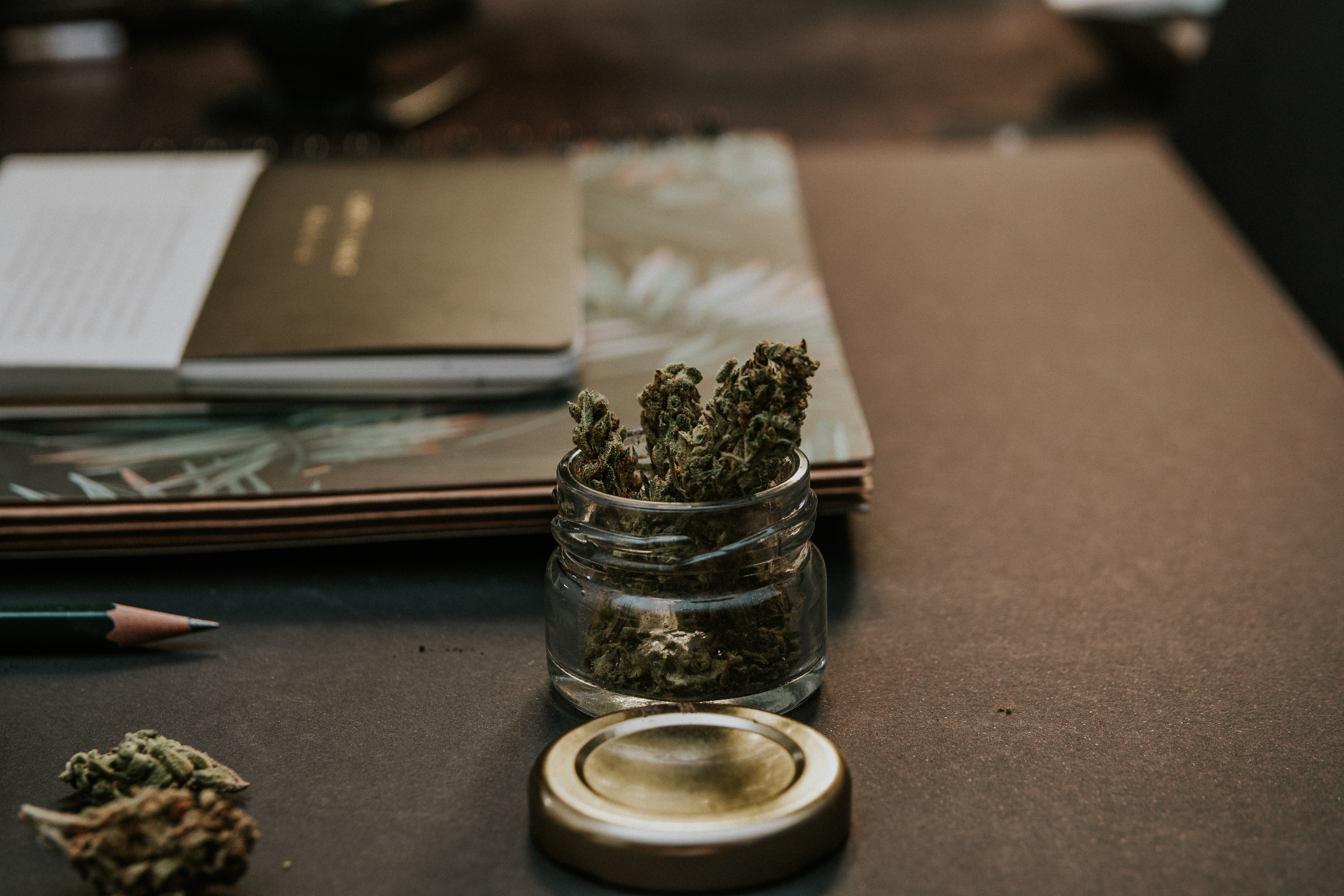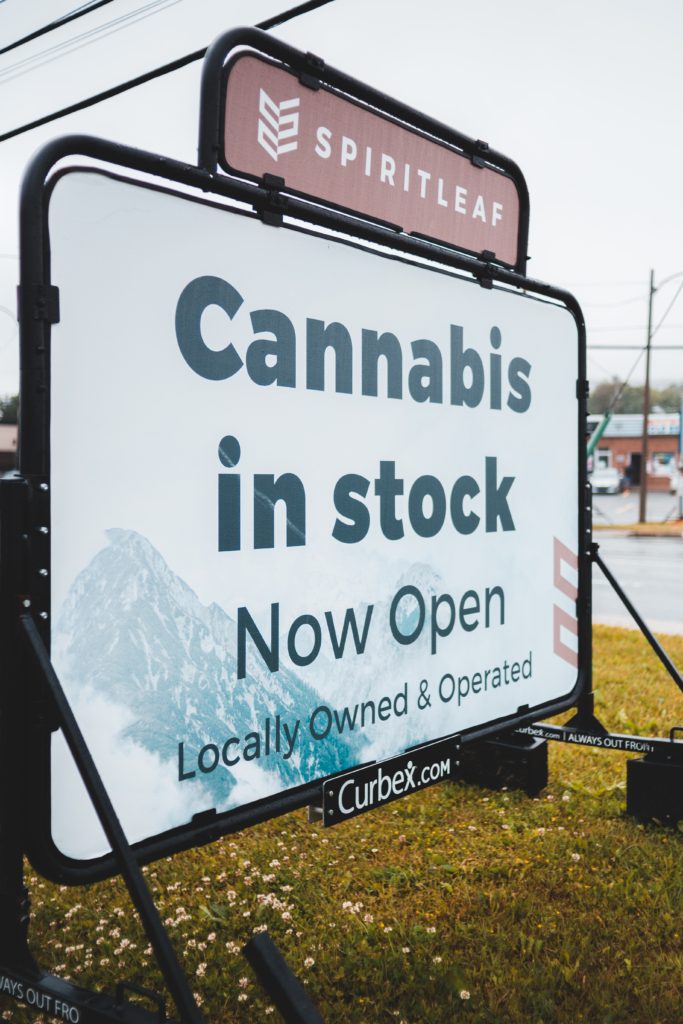An Interview about Marijuana Law with Jeanette M. Braun of Braun IP Law, LLC
The U.S. cannabis market is quickly expanding with only two states left where it is still considered illegal for any use and federal legalization on the table in 2021. With a total of seventeen states where marijuana is almost completely legalized leaving the remaining states somewhere between decriminalized and medical use only, it is a rapidly growing industry. Because of the diverse range of legality, running a cannabis business, shop or dispensary can be legally challenging for many reasons.
In this first Ask a Lawyer post we’ll be discussing cannabis with Jeanette M. Braun, Esq. to put into perspective some of the legal issues surrounding cannabis. Braun is a second-generation patent agent and first-generation IP attorney following in the footsteps of her mom, Kajane McManus, who she began assisting as early as thirteen years old. In middle school, after many boring hours at her mom’s office, Braun found herself immersed in the world of intellectual property law. As a solo practitioner, Kajane’s resources were limited and soon Braun found herself typing up what ended up being a response to an Office Action for a patent application from handwritten notes for her mother. Thus began her journey into the legal profession.

When starting a business for any reason, it is important to consult with a lawyer. The information found in this post is not a substitute for legal advice.
Cannabis & Intellectual Property
“Brand protection is incredibly important for any business.”
– Jeanette M. Braun, Esq.
Cannabis brands face a unique set of challenges when it comes to marketing their business. From frequently banned hashtags on Instagram to posts being removed from social media to not being able to federally trademark their cannabis products, it can be difficult to stand out and be seen. The fight between states’ rights and federal regulations often put marijuana business owners in a distinctive position.
From growing, or selling, cannabis plants that are federally illegal (hemp is federally legal), to selling items like pipes, grinders, and other federally legal items, each brand must evaluate its risk. When it comes to growing unique strains, Braun explains that “many people believe that a strain name has trademark rights just like a business’ logo or slogan. This is not the case. A strain name cannot serve as a trademark because it is being used to describe the product itself. For trademark rights to apply, the name or mark must be used to distinguish the product from other products and identify a certain business as its origin. If a name merely describes the product itself, there are no trademark rights to the name. As an example, let’s use carnation varieties. Carnation (flowers) come in a plethora of varieties and each variety has a name. Some examples include Cheddar Pinks, Sweet Williams, and Dianthus Caryophyllus. These are the names of the plant variety itself and everyone is free to use these names when selling flowers or seeds.” This means that other cannabis businesses may use the same name you have for a specific item if the name is not acting as a brand name (source identifier) and can be frustrating when it comes to branding your products.
Braun also says that “The business can register a state trademark for the federally unlawful portions of its business. State trademark registrations do not have the level of power a federal registration does, but they offer some protection.” She recommends that cannabis businesses register their trademark for federally lawful items wherever possible.
Cannabis businesses still must use caution when branding their edibles or strains using trademarked or licensed names such as popular brands or well-known characters. The most notable case over the last few years was a cannabis brand called Gorilla Glue Strains and their popular Gorilla Glue #4 strain. Don’t be like GG Strains, they were ordered to remove all instances and products by January 1, 2020. Other pop culture names like Bruce Banner, Gushers, or Candyland, are frequently used. Braun says, “If that business is using the name as a brand name, then there may be trademark infringement.”
Crossing State Lines with Weed
One of the biggest obstacles to selling cannabis products is crossing state lines. Additionally, it is still federally illegal to grow, sell, or use marijuana for any purpose. The booming cannabis industry cannot simply develop a product, create a website or open a storefront, and begin selling. As Braun put it, “many states have decriminalized possessing it, but the state can still confiscate the shipment if the state is aware of what the shipment contains.” This can be a devastating experience for small cannabis brands.
Starting an online or brick-and-mortar business requires a lot of planning for cannabis brands. There are permits, unique legal requirements, and numerous nuances. Fortunately each year, the risk is reduced as we move closer to the full legalization of cannabis in the United States.
Moving the marijuana goalposts is a constant problem when it comes to planning. In an effort to solve these issues, many businesses innovate or entire industries are created to help accommodate the business needs in that sector. When discussing the hot-button issue of the Pact Act, Braun says, “Necessity is the mother of invention and we will see new shipping and logistic businesses open that will solve the problems created by the amendment. We may also see lobbyists and other influencers work to change the amendment.”

Cannabis Consultation
When it comes to any industry, taboo or otherwise, running a business is a challenge. Braun recommends researching regulations as much as possible about the cannabis industry as well as consulting with a lawyer to help you get a better understanding of the challenges and risks your business may be facing. She says, “It is better to have an accurate picture of the seascape than to enter into the waters without knowing who rules what areas, how to protect your ship, and what dangers lurk just outside of your line of sight.”
Frequently, cannabis startups are small and as such may be limited in resources. Firms like Braun IP Law will go out of their way to accommodate small businesses or solopreneurs. Legal help is not all stuffy suits and expensive consultations. Take your time in talking to and finding the right lawyer for your business. Many lawyers understand the disparities of the legal system and attorneys like Braun cares deeply about educating business owners on how to protect their assets. When asked about her work with clients, she said, “If small businesses know how to sail in these waters from the start of the journey, they will have an easier time capitalizing on their winds and stopping others from siphoning off their winds.”
Legal assistance can be within your reach and cannabis brands experience more tumultuous waters than most. Get help, seek answers, and come back for our next Ask a Lawyers post where Jeanette M. Braun will offer us some insight into general intellectual property law.
Disclaimer: This post is not to be construed as legal advice of any kind and does not form an attorney-client relationship. The material provided is for information purposes only. If legal advice is needed, hire an attorney.


